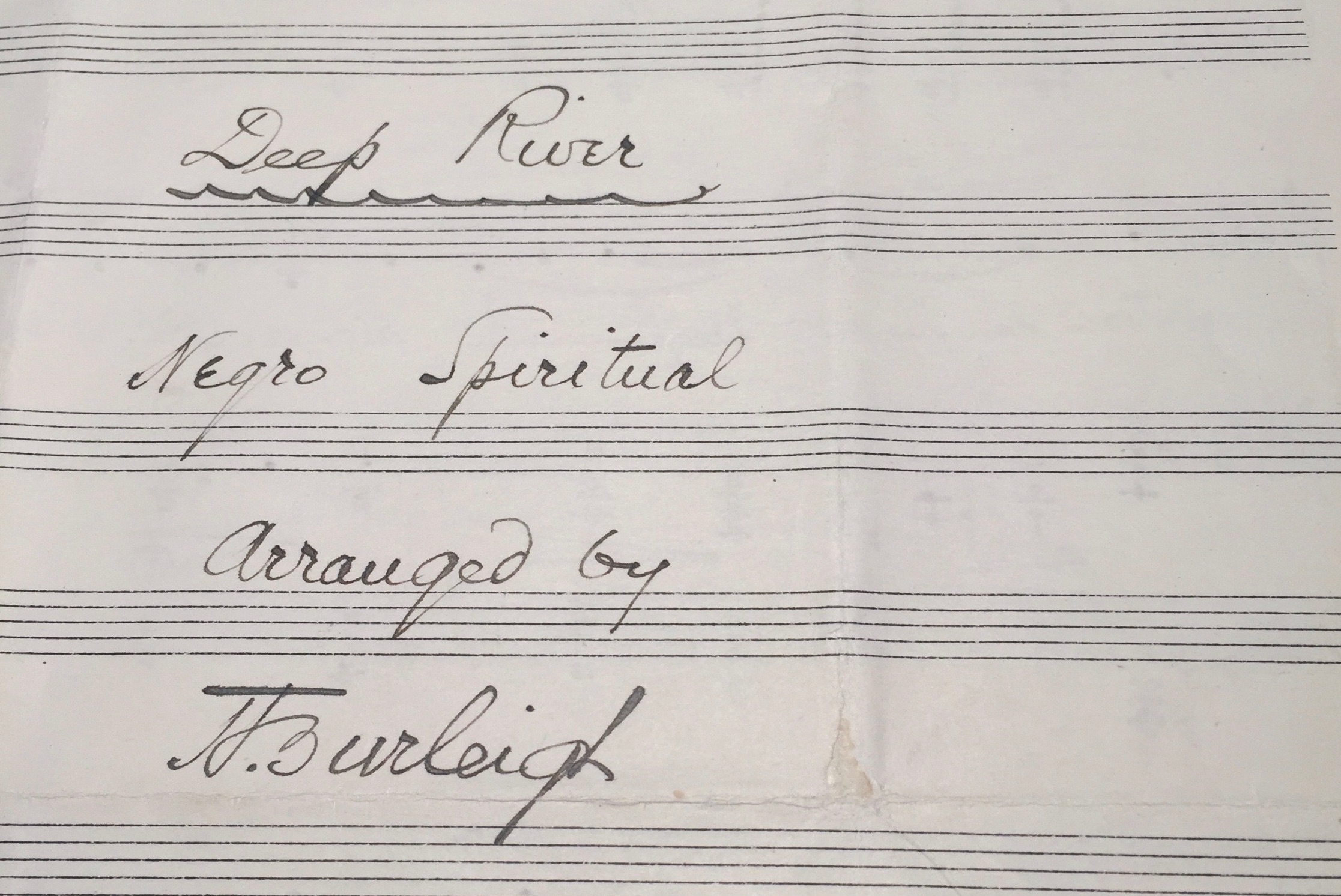Receive updates from the Harry T. Burleigh Society, as well as video recordings from our past performances.
A Brief Overview
On the 150th anniversary of Burleigh’s birth, Society co-founders Lynne Foote and Dr. Marti Newland organized to develop a resource for scholars and artists pursuing work about baritone and composer Harry T. Burleigh (1866-1949) and the concert spiritual. Compelled by the enduring significance of concert spirituals as artifacts and living expressions, Foote and Newland engage the complicated emergence and performance life of concert spirituals through Burleigh’s work.

Born in Erie, Pennsylvania and a descendent of slaves, Burleigh’s activity as a student at The National Conservatory (1892-1896) led him on a path that still resounds. After his composition studies with then-conservatory director Antonin Dvorak (1841-1904), Burleigh arranged and published the first solo voice-piano arrangement of a concert spiritual, “Deep River” (1917, G. Ricordi). This cemented the concertization of spirituals as art songs and put Burleigh in motion to lead other composers, singers, worshipers and listeners to participate in concert spiritual engagement.
Feature 2
Distinct from the concert spiritual choral tradition led by the Fisk Jubilee Singers in the 1870s, the solo concert spiritual called for a professionalizaiton of spiritual singing and arranging. Participating in the Western art song tradition, the publishing industry, and a charter member of ASCAP, Burleigh forged a career as a baritone soloist at St. George’s Episcopal Church and Temple Emanu-El, where he was in the racial minority as an African American. Burleigh was also a voice pedagogue, teaching acclaimed singers such as Paul Robeson and Marian Anderson. His legacy exemplifies the profound possibilities and lessons within the concert spiritual—which the Society explores and expands.
Feature 3
Concert spirituals have a peculiar performance life, at once fraught with the politics of racial inequality and constitutive of the unique American artistry. Horrors of the Atlantic slave trade, political strategies to resist oppression, and expressions of Christianity are encompassed in these songs. The Society follows Burleigh in providing forum for anti-racist American history and culture.
